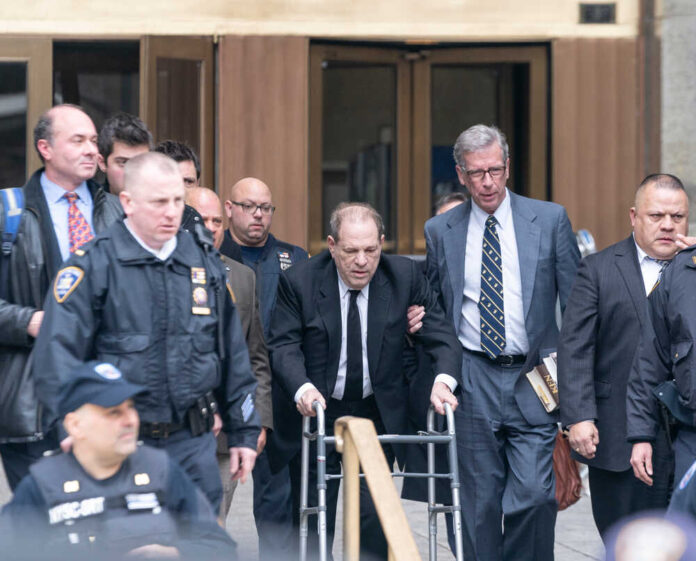A New York Appeals Court has thrown out Harvey Weinstein’s sexual assault conviction. Weinstein’s attorneys argued that the judge should not have permitted testimony from women whose allegations did not form part of the case against their client. Furthermore, his lawyers will use the victory to appeal against a second conviction in Los Angeles, saying the New York conviction significantly prejudiced the jury against Mr. Weinstein in California.
In 2022, a Los Angeles court sentenced Weinstein to 16 years in jail for raping Evgeniya Chernyshova, who is also pursuing a civil case against him. This prompted his attorneys to accuse her of lying during the criminal case when she testified that she was not financially motivated.
Weinstein faces several more civil suits, including from Hollywood actors who say he destroyed their careers because they refused his sexual advances. One claimant is Julia Ormond, who starred with Brad Pitt and Harrison Ford in the 1990s until she alleges Weinstein stepped in and scuppered her opportunities. Ashley Judd, who was among the first to speak out about the producer’s conduct, is also suing him for destroying her career by tarnishing her reputation.
In New York, Manhattan District Attorney Alvin Bragg has indicated he intends to refile against Mr. Weinstein. The LA District Attorney’s office issued a statement saying it was “saddened” by the New York decision but was confident that California’s would still stand.
The 72-year-old Hollywood producer was found guilty of two sexual assaults in New York in 2020 and sentenced to 23 years in prison. Two years later, a Los Angeles jury found him guilty of raping Chernyshova, leading to his 16-year sentence. The latest ruling overturns the 2020 conviction, but Weinstein will remain in prison while a new trial is arranged. Experts say he is now likely to be transferred to California to serve his sentence for raping Chernyshova. Californian attorneys say state law allows judges to admit evidence not directly pertinent to the matter on trial.














